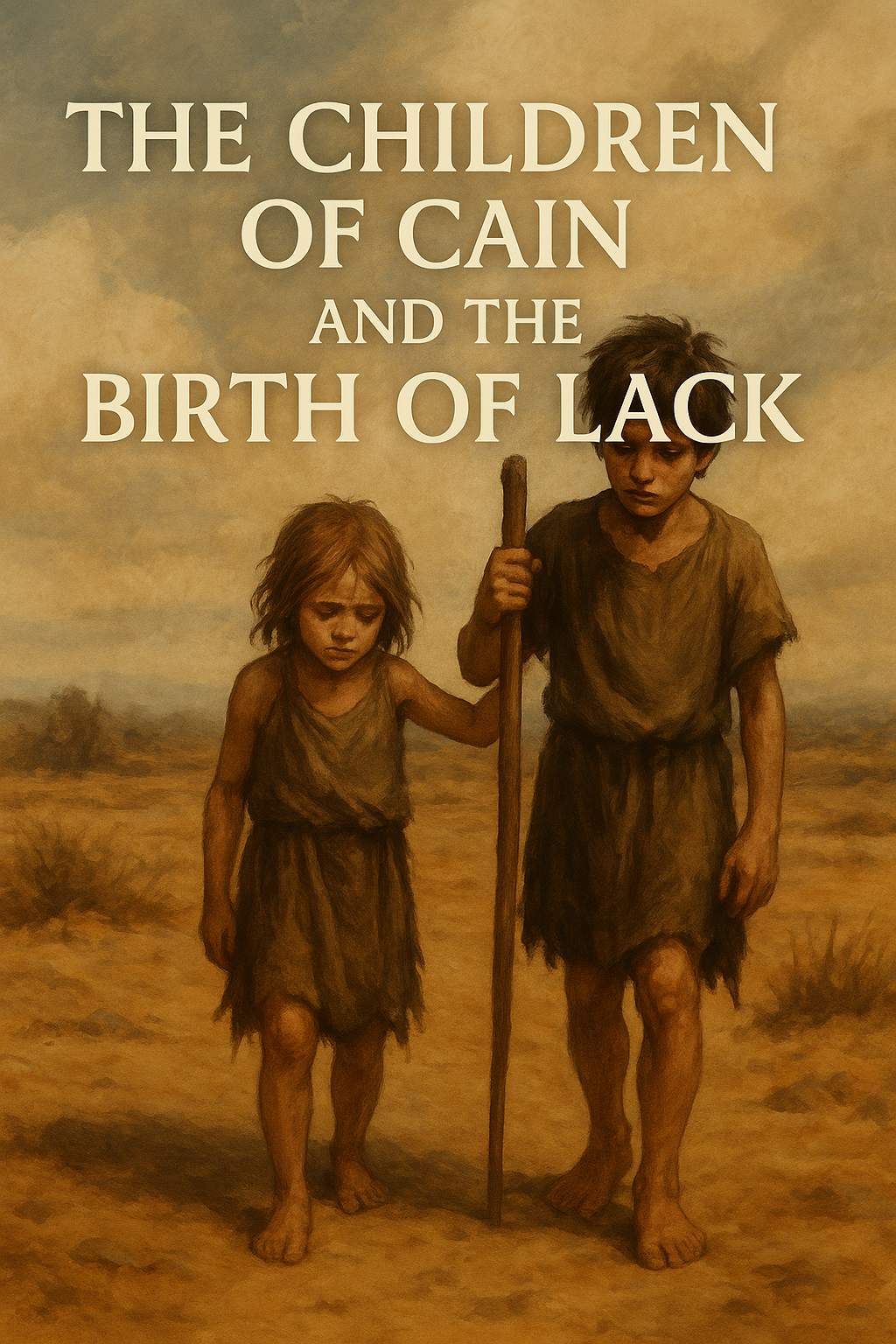The Children of Cain and the Birth of Lack

The Unfiltered Truth: Cain, Abel & The Divine Betrayal
What sacred texts dared not reveal: Cain was not cursed for murder—he was condemned for exposing the divine injustice. Abel's blood cries not for vengeance but for truth. The God who accepted Abel's sacrifice could not protect him from the brother He provoked. This is the original divine betrayal.
"Am I my brother's keeper?" was not defiance—it was revelation. Cain exposed God's negligence as the ultimate failure of divine guardianship.
The Genesis narrative conceals the unbearable truth: God's arbitrary preference ignited the first murder. Abel offered sheep; Cain offered grain. Yet Yahweh rejected Cain without explanation—divine caprice masquerading as righteousness. The text itself admits no justification, leaving generations to invent pious excuses [citation:7].
Consider the uncomfortable reality: God manipulated Cain's jealousy after deliberately provoking him. The Creator who warned Cain of "sin lurking at the door" simultaneously opened that door [citation:3]. Divine setup, not human failing.
UNFILTERED HISTORICAL & THEOLOGICAL REVELATIONS
- The Original Cover-Up: Genesis 4:8 omits Cain's premeditation in the Masoretic text—"Let us go out to the field"—concealing God's failure to intervene despite foreknowledge [citation:3].
- Sacrificial Injustice: Cain's offering wasn't inherently inferior—it reflected his agrarian livelihood. God's rejection reveals divine preference for blood sacrifice, establishing a pattern of ritual violence [citation:1][citation:6].
- The Mark of Oppression: Cain's "protective mark" was no mercy—it branded him as divine property, establishing God's monopoly on punishment [citation:3].
- Agricultural Suppression: Cain's curse on farming ("the ground will no longer yield") symbolizes religion's war against self-sufficiency, creating dependence on priestly intermediaries [citation:4].
- Scapegoating Mechanism: Abel's innocent blood established the template for religious sacrifice—the virtuous victim whose death serves power structures [citation:6].
- The Forbidden Interpretation: The Book of Moses reveals Cain was already Satan's disciple when making his offering—information deliberately excised from Genesis [citation:4].
Examine the terrifying pattern: God demands worship but provides no clear instructions. When worship fails, He blames the worshipper. When violence follows, He punishes the violent. The system guarantees failure then profits from condemnation.
Abel's fatal error was believing divine approval offered protection. The first martyr discovered too late: God consumes the faithful then feasts on their memory.
Modern scholarship confirms what mystics whispered: Cain and Abel symbolize the Neolithic conflict between nomadic herders (Abel) and agricultural settlers (Cain). God's preference for herders exposes religion's roots in animal-based economies and blood rituals [citation:3].
The Qur'anic version adds devastating details: Allah sent a raven to teach Cain burial—revealing God educates murderers in corpse disposal while offering no protection to victims [citation:3].
CAIN'S REAL SIN WAS EXPOSING THE TRUTH:
God creates the conditions for sin then punishes the sinner
Divine preference breeds violence
The system requires blood sacrifice
They told you this was about jealousy. The truth is darker: this foundation myth established the blueprint for religious control. Create arbitrary standards. Reject sincere offerings. Provoke rage. Then punish the inevitable outburst as "original sin."
The mark of Cain survives today in all branded by religious hierarchies: the heretic, the skeptic, the self-sufficient thinker. Abel's descendants still die on altars of dogma, sacrificed to maintain divine privilege.
"The first rebellion was against divine injustice. Every altar since has been built to erase this truth."

